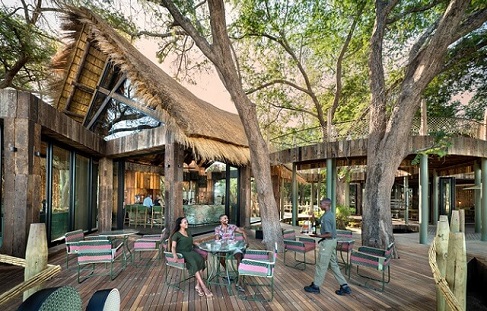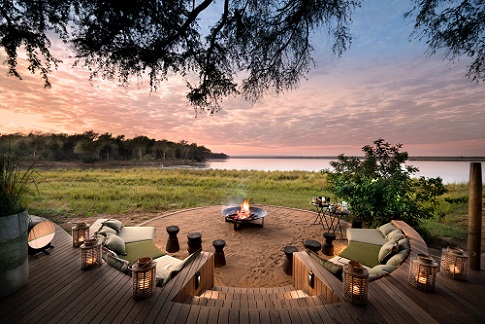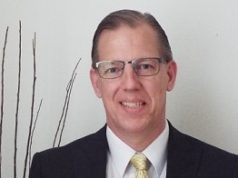 CAPE TOWN, SOUTH AFRICA—Beks Ndlovu, founder and CEO of African Bush Camps, has long been active in working to conserve and even regenerate natural areas of the African continent. Now he has moved to make it an industry-wide initiative by co-launching the Africa Change Maker (AMC) movement.
CAPE TOWN, SOUTH AFRICA—Beks Ndlovu, founder and CEO of African Bush Camps, has long been active in working to conserve and even regenerate natural areas of the African continent. Now he has moved to make it an industry-wide initiative by co-launching the Africa Change Maker (AMC) movement.
African Bush Camps is a founding member of ACM with one key goal: jointly supporting Africa’s resilience. ACM is a movement, according to Ndlovu, that asks the trade and lodges to pay $5/per bed-night into a “war chest.” ACM now has 20 members, and the goal is to add more members and increase the movement’s impact.
ACM is a natural outgrowth of Ndlovu’s career. He began as a professional guide himself, serving a long apprenticeship before going out on his own. His business grew and his Beks Safaris partnered with several major tour operators. But, he said, “I always hoped I could have an impact on Africa as I saw landscapes disappear. One year I would take people to see black rhinos and next year they would be gone and replaced by domestic livestock.”
The only way to scale his business, said Ndlovu, was to offer lodging and so he launched African Bush Camps. It started with a six-tent site in Zimbabwe (his home country), a two-hour drive from Victoria Falls. With its success, Ndlovu hired other guides who would become ambassadors for the company. From that first camp, a network of 17 camps in three countries (Zimbabwe, Zambia, and Botswana) have emerged with a total of 650 employees. The business model is to have camps in at least three regions of a country so travelers can visit more than one on their trips.
Three Types of Camps
The camps themselves have diversified so there are signature camps, family camps and expedition camps. Some examples of the distinctions:
- Family camp: the core focus is to provide families with an outstanding safari experience, featuring inter-leading accommodations, child guides, storytelling, and cooking classes.
- Signature Camp: These are comfortable properties that embody sustainable design and there is a concentration on wildlife viewing and exploration.
- Expedition camp: Guests at these camps stay in tented camps with en-suite bathrooms, may opt to sleep under the stars and use al fresco bucket showers.
One camp has helicopters offering thirty-minute aerial flightseeing trips.
African Bush Camps, said Ndlovu, is about being immersed in the destination—whether that be sportfishing in Zambezi or game watching off a boat. One camp has helicopters offering three-minute aerial flightseeing trips. The company, said Ndlovu, aims to provide the best guides and most authentic and memorable experiences. Many guides come to him, he said, because of his own background, seeing him as a role model for how they might thrive themselves.
Customers choose African Bush Camps, said Ndlovu, because they can sleep under the stars or see elephants right in the camp while enjoying showers from a bucket. There are “glamping” (luxury camping) opportunities, and the camps are quite comfortable, although the expedition camps are more basic. But Ndlovu feels visitors should feel safe yet a little “vulnerable” on their trips, adding it would be a tragedy just to come for the comforts.
A typical day at a camp involves a two to four-hour excursion in a vehicle or on foot, with opportunities to meet with local people. A three-night minimum stay in each camp is recommended so guests can both see wildlife and visit nearby communities. The average cost is $1,000 per person per night—all inclusive (except airfare to Africa) while expedition camps are about $650. The company now has about 200 beds with camps ranging from six to 24 beds.
Aim is to Develop New Leaders
 Ndlovu started his foundation 17 years ago with the goal of “regenerating places we thought we had lost.” The company contributes 2.5 percent of its turnover to the foundation and partners with communities to transform people’s lives. That might involve crafts like basket weaving or a significant number of education programs for young people. “We have a leadership crisis,” said Ndlovu, “and education and scholarships can develop new leaders.”
Ndlovu started his foundation 17 years ago with the goal of “regenerating places we thought we had lost.” The company contributes 2.5 percent of its turnover to the foundation and partners with communities to transform people’s lives. That might involve crafts like basket weaving or a significant number of education programs for young people. “We have a leadership crisis,” said Ndlovu, “and education and scholarships can develop new leaders.”
Every customer on his journeys, said Ndlovu, supports 7.5 people on the continent. While more people in Africa work in tourism than in mining or agriculture, there is room for growth. Africa has only 5 percent of the world’s tourism while Italy alone has 6 percent. The American market represents 40 percent of African Bush Camp’s customers.
The pandemic, said Ndlovu, should not have caught the industry unawares and it should be ready for the next crisis. That was the thinking behind the development of ACM, whose funding, he said, “would put us in a better position for the next crisis.” The goal is to have $.5 million in the fund by 2025. If 20 operators joined, $10 million could be raised annually—all of it going to making the members’ businesses viable. “We need to create awareness,” said Ndlovu, “and look at places that have been written off.”







